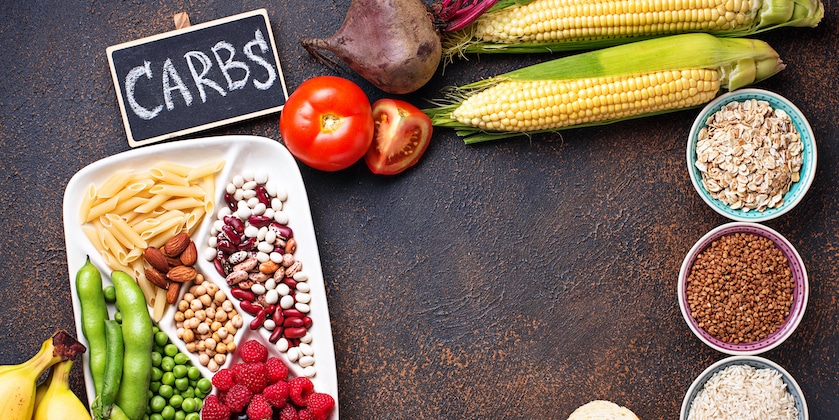Carbs have gotten rap as the boogie-man of diet culture. According to some they’re responsible for everything from glucose spikes to weight gain, and are so called “empty calories”. In actuality, carbs are just as important to a healthy diet as protein and fats, and are essential to having a balanced diet.
What are Carbs
There are three macronutrients that your body requires daily. Proteins, fats, and carbohydrates. Carbohydrates are your body’s primary source of energy. According to the Dietary Guidelines for America (2010) both children and adults should be getting between 45 and 65% of their daily calories from carbohydrates. At four calories a gram, that means the average personal should be consuming between 225 and 325 grams of carbs daily (based on the 2000-calorie diet model).
There are three main types of carbs: starches, fiber, and sugars. Sugars are simple carbohydrates. There are natural sugars and processed sugars. Natural sugars can be found in fruits, veggies, milk and honey, while process sugars are in syrups, sugary drinks, and processed foods and sweets. Starch is known as a complex carbohydrate. “Starchy” foods include legumes, grains, and veggies like potatoes and corn.
Carbohydrates are your body’s primary source of energy. They are utilized by your body in a number of ways. Carbs are what keep major organs like your brain, kidneys, heart, and muscles functioning properly. Without carbs, your body won’t have the fuel it needs function properly.
Where should You Get Your Carbs?
All carbs are not created equal. Even though we’ve established carbohydrates are good, you want to make sure you’re filling up from the right sources of food. Here are some healthy carb-rich foods to add to your diet:
Fruits such as berries, citrus, melons, pears, apples, bananas, and kiwis are full of healthy carbs. Whole grains like quinoa, amaranth, barley, brown rice, and oatmeal are also a great source of healthy carbs. Whole-grain breakfast cereals are also an easy way to fill-up. Other high-carb foods include legumes (black beans, lentils) and starchy vegetables.
Health low-carb foods include nuts and seeds, soy milk, tofu, and non-starchy veggies.
Special Considerations
Some health conditions like diabetes change how your body reacts to carb exposure. If you have diabetes, talk to your doctor about what kind of diet will be best in helping you manage your blood sugar. Because carbohydrates can significantly blood sugar levels in those with diabetes, the American Diabetes Association suggests no more than 60 carbs per meal.
Women who are pregnant should consume 175 grams. Breastfeeding women ought to consume 210.
For more on healthy eating check out our blogs on whole foods and vegan diets!

